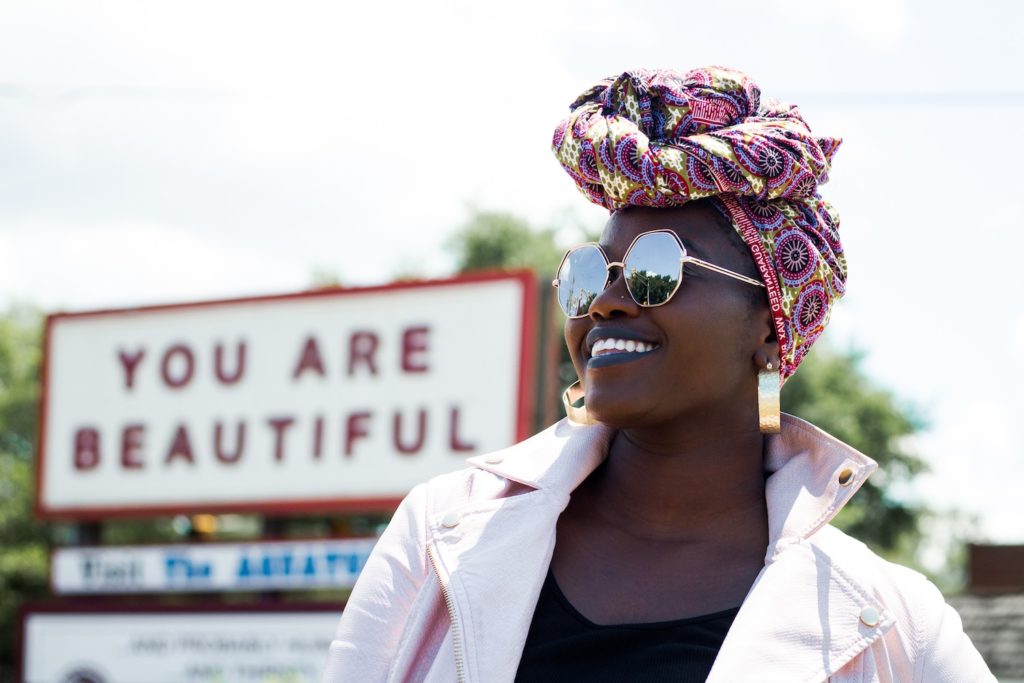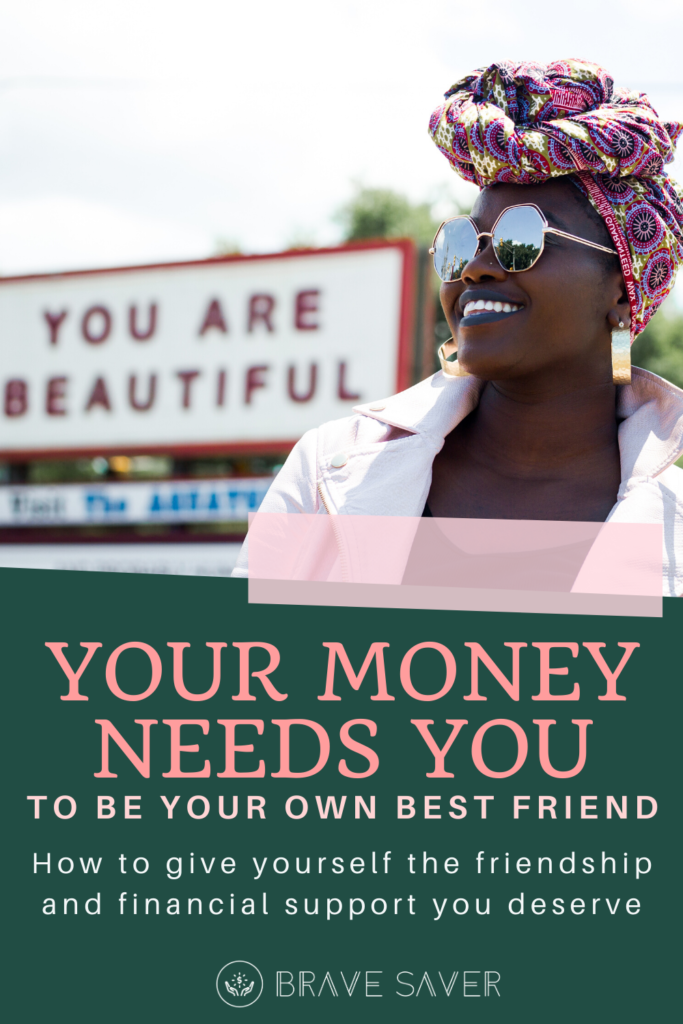
“Hey, this is kind of weird but… I don’t feel like there’s anyone else I can really talk to about this money stuff. And I’m having a really tough time. My finances feel so overwhelming and out-of-control.”
If a friend were saying this to me, I’d immediately stop what I was doing to give their money heartaches the stage. I would listen without judgment. I’d try to ask questions I’d think would help my friend gain some clarity, and offer any insights I might have. But most of all, I’d let them know they aren’t alone in this.
That’s what I would do if a friend were saying that to me. But it wasn’t a friend asking me for help with money: it was me.
What's in this post
I wasn’t a good friend to myself
Here’s how my response goes to that same plea for help when it comes from within:
“Yah that is weird. Who reaches their 20s and doesn’t know how to deal with their money? And I mean, of course you’re having a tough time. What have you done lately to get your finances under control, huh?”
At least, that was the response I had if I even registered that internal stress signal and could be bothered to engage. Other times, I’d just gloss over it entirely. “Oh yah, that’s tough. But oh, have we checked Twitter or Instagram lately? Didn’t you have that text from so-and-so to respond to?”
When talking to myself about money, especially in those moments I was struggling, I didn’t know how to show up. Money often set off my toxic financial shame, leading me to by belittle myself or minimize the problem.
If a friend had treated me this way? I’d question this dynamic right away.
I never cruelly criticized or abandoned a friend when they needed help. So why did I do it to myself?
But it’s so much harder to recognize an unhealthy relationship when it’s happening within myself. Everyone is their own worst critic, I’d think. Or, Everyone needs a break from their problems sometimes.
Slowly I became more self-aware and noticed this unwillingness to show up for myself and improve my finances.
I was afraid to show up for myself and manage my money
Money is a topic that can so easily set off uncomfortable emotions like stress, fear, shame. That’s why being able to talk with friends about money is so important.
But while I do feel empathy for a friend’s financial struggle, I am not sitting in the pain and fear the way they are. Trying to be there for myself, however, plops me right down into the stinky money-fear soup.
When offering support to myself, I’m trying to do two things at once: experience all the big, scary emotions at the same time that I’m trying to soothe, encourage, or support myself. My ability to meet myself with kindness and patience was limited by my ability to manage myself and tolerate these big, scary feelings.
But sidestepping my own financial problems meant I was leaving myself in a lurch. I’d lean toward where I expected there to be a strong center of support, only to find a void. In bad moments, it felt like I was in freefall, unable or unwilling to catch myself.
This hurt my financial confidence and damaged my trust in myself. Instead of proactively managing my spending, I avoided looking at my bank account statements. I couldn’t handle reviewing my finances and making a plan because it made me feel so lost and awful about myself.
By shying away from my own financial problems or negative feelings about money, I missed opportunities to improve my finances. I wasted time stuck in unhelpful patterns of financial management.
I owe it to myself (and my money) to be my own best friend
I want to change this dynamic because I know I owe myself more. I owe it to myself and my finances to try to show up for myself when I’m needed, just like I would for a friend. And to offer the same stable support, and willingness to be present even through the toughest situations.
Fortunately, I already have a model for how to show up and offer meaningful support to myself in how I show up for others. I know what it means to offer care, honest love, and encouragement as a partner, parent, friend, child, or sibling. I’m applying those skills to my relationship with myself, and offer myself that same level of support.
Attack your money problems, not yourself
In my marriage to my husband, Moozh, I’ve made an effort to work past fighting or getting defensive when we argue. Instead, we work to identify the real issue and work together to attack that problem, rather than each other.
I need to do the same for me. When I’m struggling with my finances or feeling stressed about money, I don’t pick a fights with myself. I try to identify the actual obstacle and put my energy into finding a solution to it.
Sometimes, that requires facing some painful failings or hard truths about myself — just like marriage can require uncomfortable or tough conversations. But when I stay on my own team and work to have my back, this allows for room to fail and to grow.
Have your back and show up
Dependability isn’t always my strong suit as a friend, but I still put effort into managing this shortcoming so that it’s not damaging my relationships. If I believe my friends deserve to know I have their back, shouldn’t I give myself the same guarantee?
So, I commit to doing the sometimes-tough work of managing my finances. Even when things are tough and I don’t have the answers, I have a responsibility to offer myself the full support from within that I can muster.
I don’t expect myself to stick to every money plan perfectly, but I do expect and commit to making a solid effort. If I say that I’m setting a budget, I chart out the specific steps to do so. If I fall short, I try to own up to it and make it right — perhaps finding other areas of my budget where I can make up for going over.
Develop a tolerance for financial stress and discomfort
Showing up for myself has put me face-to-face with the resistance I’ve had to being present with myself in the past.
Offering myself support often requires sitting with discomfort, with my worst fears and deepest hurts.
And again, I know I can do that for myself because I do it for others. If I can listen to my 6-year-old’s account of how a kid in her class hurt her feelings? If I can hear out Moozh in his most worried, vulnerable, frustrated moments? I can offer the same sympathetic ear to hear out my own heartaches or passing hurts.
It’s still scarier to be there for myself than others, to sit with my own “yikes” feelings that I used to run from. Still, I’m growing my capacity to sit with my own pain, or uncertainty, with the discomfort of failure or the ugliness of my flaws.
Mend broken self-trust
As I’ve worked on being a better friend to myself, it’s gone a long way to repairing the trust I have in myself. I no longer have to be terrified of a money mistake, because I have more confidence that I can recover. I have a greater trust in my strength and belief that I have the capacity to change and do better, that I will find a way to get past financial obstacles.
Today, I have faith I didn’t before: faith in myself, what I can do, and what I can get through.
I’ve worked to repair this trust the way I would with a friend: by being more kind, offering grace, and giving myself more credit. I recognize the ways I am already showing up, giving my all, being stubborn and unafraid. And I in more consistent and meaningful ways.
Know when to take a break
Some of that trust, too, has come with respecting my boundaries and limits. It’s similar to knowing when Moozh is not in the right place to go over our family budget, for example.
With myself, I keep a temperature of how I’m doing and set expectations accordingly. With practice, I have a better idea of when I can buckle down and handle unpleasant and stressful tasks. Or, of when I need some space to process what I’m feeling, de-stress, and recharge.
I ease off in these times and allow time to rest and take a break. In the past I might have pushed too hard and burnt out. By respecting my boundaries instead of pushing past them, I set myself up to recover and try again — rather than burnout and quit.
Give yourself the friendship and financial support you deserve
Relearning to be my own best friend and offering myself unwavering support in my finances and my life has been deeply rewarding. As it turns out, I like who I am! And when I like myself and work to be on my own team, I have infinitely more internal reserves to draw on when working through money decisions and problems.
Being a friend to myself has made me more financially resilient and confident that I can get through whatever money emergencies life throws at me, big or small. It’s been empowering. I’m not waiting for someone to rescue my finances. I’m taking on the role of being that person.
Because I know that the one source of financial support I’ll always have access to, will always be available, and I’ll always need — it’s me.
Recommended reading
- “Face the numbers: Moving beyond financial denial” from The American Psychology Association provides tips for recognizing and dealing with financial avoidance — the behavior mentioned in this piece of avoiding money tasks or management.
- “Why You’re Failing at Your Budget + Getting Rid of the Financial Shame” is a wonderful episode of Oh My Dollar, hosted by Lillian Karabaic, in which she covers the ways financial shame can keep us stuck — and how to move past it.
- “I’m Slowly Learning How To Be My Own Best Friend” by Natalia Vela for Thought Catalog explores the necessity and beauty of self-befriending.

Photo by hannah grace




1 Comment
21 of the Best Personal Finance Blogs for 2021 - Minimalism and Your Money
January 13, 2021 at 12:01 pm[…] Must Read: Your Money Needs You to Be Your Own Best Friend […]